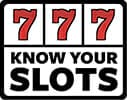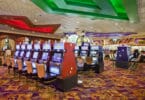In reaction to one of my recent posts returning to the conversation of randomness of slots and stopping the reels, I received a couple of comments from a reader that I’m taking to a new post instead. In part the reader stated:
If you do not know the intention of the Casinos …
The intention of the casinos is to make a profit. Slot machines can do this without any hanky panky. They’re among the most profitable items in the house. There’s simply no reason to believe they’re doing things to muck around with the paybacks because they do a great job of making money without having to do any of that.
If you believe the casinos aren’t trustworthy (which no matter how many times I say the above I know some will – I can’t force people to see it my way), I’m not sure why you’re playing in them. It just seems like a self-punishment exercise at that point. If you believe they’re fixing the games, why give them your money?
There are machines that do not pay anything (NEVER), it does not matter if the previous one lost a lot or nothing, it never pays !!! that is not random !!!
Let’s be honest – you have no way of actually proving this, and our observations are far from helpful in doing so. But let’s discuss what we can understand about slots.
Most slot machines are designed to achieve their long term payback over hundreds of thousands of spins; some very volatile games can reach into the millions. If we presume a game gets 500 spins an hour, that’s 200 hours of continuous non-stop play on a game to get to 100,000 spins, or 2,000 hours to get to a million spins.
Did you observe 200 hours of continuous play? Even then, it probably won’t be perfect; there’s a range mathematically even at that level of play, because it’s not a forced payback, but a mathematical average that will increasingly likely achieve its outcome as the game gets played more.
I love to use the Hundred or Nothing game as a great example of an extreme. On a $1 spin, you either win $100, or win nothing. Those are the two outcomes. Let’s presume a 90 percent payback on the game; that means on average a $100 spin will hit every 111 spins. But it won’t be that perfect – you could see five $100 spins in 20 spins; you could see no $100 spins in 500 spins. But over time, it will approach the average, given enough spins. But it would be easy to watch multiple people sit down, play, and win nothing.
Megabucks is another great example – it’s got a lower payback, and a gigantic progressive, so a chunk of the game’s already low payback is in that $10 million starting progressive. So one person will win enormously, some small percentage will win at all, and many will lose, but they’re chasing the dream.
So just because you observed someone burn through their bankroll, and then another person do the same behind them, that doesn’t mean the machine can’t or won’t pay. It could be a tough game, and it’s designed to do exactly that. (And some people may want to play it for that exact reason. Mega Vault is another volatile game that many slot players chase the dream on.)
I’m sorry you think your local casino is screwing people over. I hope you’re not playing there, or are and using this line of thinking to try to find someone or something to blame. Slots are negative expectation games, just like everything else in the casino, and they can be highly efficient at earning casinos money in some cases. They can do this while following all the rules many people think they aren’t.





